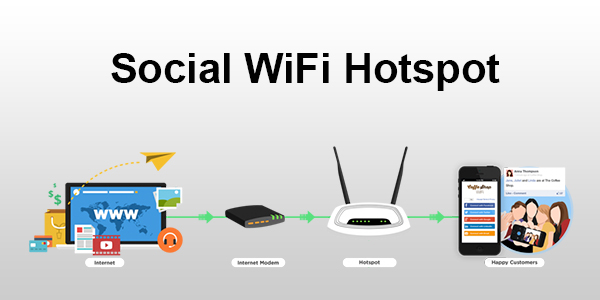by Heba Salah | May 29, 2017 | Small Business
CRM stands for “Custom Relationship Management”. The idea first started in the 90s. When it first began it was meant only for simply managing the relationships with customers. Today, it refers to methodologies, software and internet capabilities that allow companies to manage their relationships with current and potential customers. It also refers to practices, strategies s that companies use to manage and analyze customer interactions and data throughout the customer lifecycle, with the goal of improving business relationships with customers, assisting in customer retention and driving sales growth.
Thus, CRM enables you to focus on your organization’s relationships with individual people; whether they are customers, service users, colleagues or suppliers.
Benefits of CRM to your business
CRM system can help you grow your business by helping you track your history with your customers and your interactions with them. So what does it track and how can this be useful? It tracks calls made, emails sent, meetings held, presentations delivered, and even the next steps required to close deals or grow customers’ accounts. Of course this is very important to your business because tracking is the most important thing. By one click you can review every action that took place between you and your customer which enables you to foresee how to continue.
With a CRM system, you can have one place where you can store all data related to your business and your customers. You will be able to store every customer, every lead, every request, all contact information as well as the history which enables you to make personal, relevant and up-to-date approaches with your customers. All of this information is stored in a safe and organized way that makes it accessible to authorized users.
Having a CRM system, also allows you to conduct and follow your work from any place. It also helps you in increasing your sales, as it allows you to follow quality leads and reduce time wastage. This shortens the sales cycles and thus improves your win rates.
CRM systems also allows better team collaboration. All departments will be able to collaborate with each other. They will all have access to the same data. This will also enable them to share marketing ideas that are specifically targeted towards customers and leads.
CRM system can help you in concentrating on your target market. You can apply your marketing campaigns to specific leads who have a higher interest in your products and services. Email campaigns can also be personalized, which makes them more convincing and impactful.
These are some of the benefits that you can get from having a CRM system for your business.
Final advice
Finally, when you take the decision to get a CRM, you must not be hasty in such decision. First, you must be clear about your objectives, needs, and expectations, and then methodically embark on the selection process. This can will ensure that your purchase decision delivers the cost savings and enhancements you expect. The time invested in research and analysis will not be wasted time, but it will be worth it if you can find a suitable CRM application that delivers the advantages and benefits your company needs.

by Heba Salah | May 21, 2017 | IT, Small Business, Web Design
Do you have a website for your business? Do you get all the possible benefits from this website?
Few years back, the forwards-thinking business owners realized that having websites for their businesses will be a profitable marketing opportunity. This encouraged them to build their websites and host them. When they finished doing that, all was done regarding the website issue.
Nowadays, things have become more difficult and more complicated. It is no more just about having a website for your business. The internet has become overpopulated and is continuously changing. So if you aren’t able to show and draw targeted traffic to your website, it will not fulfill the expected contribution to your business’s success and growth. This means that building a website is not the only job. What do you need to have?
What you really need after this is to manage your website or have someone manage your website for you. But what do we mean by website management?
Meaning of website management
Website management is all the multiple tasks involved in the administration and control of the hardware and software used in the Web. This is done by performing all the tasks necessary to keep a website up-to-date and in good working order so that it works and shows up correctly with the latest web browsers and mobile devices. It includes hosting, monitoring, verification that all contained links are active, maintenance, and so on.
So Website management entails a number of different services that are combined together to keep you website running without having to worry about it.
The duties and responsibilities of website management include:
1. Ensuring the website functionality and SEO availability continuously.
2. Performing regular software updates.
3. Ensuring the website’s security and keeping it up to date. This includes setting up good firewalls to block hacker as well as performing regular malware scans.
4. Monitoring, assessing and reporting the website performance.
by Heba Salah | May 14, 2017 | Marketing, Small Business
E-commerce is the transaction of purchasing and selling products and services through electronic systems.
The beginning of e-commerce can be traced back to the 1960s. At that time, it was meant for exchanging data electronically for the first time. After that, the 90s saw the first secure online purchases. The e-commerce industry then grew quickly from this point onwards. Online sales accounted for more than a third of total U.S. retail sales growth in 2015. This is according to data from the U.S.
E-commerce is still growing. It is also expected to continue growing all the time. As you can see in the graph below, global online business-to-consumer (B2C) sales are expected to nearly double between 2012 and 2018.
The rise of e-commerce forces IT personnel to move beyond infrastructure design and maintenance and consider numerous customer-facing aspects such as consumer data privacy and security.
Reasons for customers to shop online:
1- 24/7 availability: they can do their shopping at anytime of the day and at any day of the year. It doesn’t matter whether it was midnight or noon, or if it was a holiday or a normal week day. The possibility to shop online gives the customers the freedom to shop at their own pace and convenience.
2- Variety: One can get several brands and products from different sellers at one place.
3- Comparison of prices: Online shopping has made the comparison of products and prices possible and easy. This allows the customers to determine which online store offers the most affordable item for them to buy.
4- Avoid crowds: Crowds may be one of the annoying issues that anyone could face while shopping. Crowd can also be a problem when it comes to finding a parking place where you want to shop. So online shopping can help customers buy without having to stand in long lines and wait, or go around the place searching for a parking.
5- Save time: Purchasing online saves time. The customers only choose what they want to buy and with just a couple of clicks they put the order. They can save time this way and move to other important things they want to do.
6- Save fuel: The market of fuel industries battles from increasing and decreasing its cost every now and then. One of the advantages of shopping online is that there is no need for vehicles; so no purchase of fuel is necessary.
7- Easy to search for products: the customers can easily search for the product they are looking for with all its specifications. In addition, it is easy for them to find out whether this product is available or out of stock.
Advantages of shopping online for small businesses:
After we’ve learnt how the customer would benefit from shopping online, you must be wondering, how can a small business benefit from it? We are now going to cover a few key advantages of running an online e-commerce store for small businesses.
1- Lower cost: Starting an offline business needs a lot of money. You will need to have a physical storefront which will incur rental and management costs. On the other hand, it is not expensive to start an online business. Your main costs will be the software you use to set up the online store, the hosting and the domain name. So in general, an online store costs less to set up and run than a physical shop, but it’s still important to recognize that making e-commerce work requires continuing investment.
Some of the other costs that can be also reduced by opting for e-commerce are: advertising and marketing costs, personnel costs and travel costs.
2- Visitors tracking and analysis: Google analytics makes it extremely easy to know where people finding your website are from, which pages they visit and from what region they are. There are also other tools that can analyze the cursor movement as they browse your site. Such statistics would be very difficult to get with a physical store. These statistics can help you easily track what works and what doesn’t . It can also help you calculate and evaluate sales effectiveness, customer effectiveness, marketing campaigns, product mix, customer engagement and more. Having gathered all these information, you can thus build your customer persona and all the suitable things for them.
3- Social media: Social media, such as Facebook, Twitter, Pinterest, LinkedIn and others, have now made it possible for everyone to express their feelings and recommend products and services to others. You can also use social media for your marketing campaigns and to promote your products for free.
4- Product inventory: Since the products are purchased online, you can easily track what products are being shipped to the customers and how much products are left in your storage. You can also decrease the operational costs of inventory management by having an automated management system.
5- Customer email communication: In the online world, it is easy for you to get the customers’ emails. This will enable you to send them future offers and marketing messages. It’s a cheap and easy way to keep in contact with your customers.
6- Written reviews: Online, it’s easy to take advantage of customer reviews and reviews around the web to build credibility in the eyes of a potential customer. You can also support your digital marketing efforts by including these reviews and testimonials.
7- Location independent: You can easily manage your business from any part of the world. You don’t have to be in the same place in order to keep an eye and manage your business. It’s also not a must to have your warehouse and staff in the same place, you can hire a staff member from another state or even country and take advantage of possible cost reduction.
8- Larger marketplace: Selling online removes all the borders to your business. Any person, from anywhere with an internet connection can access your website. This gives you an expanded geographical reach and even a local business can become international, just by having an effective e-commerce strategy.
9- Advertisement tracking: It is much easier to measure and track your marketing efforts and marketing campaigns done through online platforms. Through this, you can keep an eye on your customers’ buying interests and habits and tailor offers that suit their needs. The result of this tracking will help you in your future campaigns.

Finally, are you still hesitated to customize your small business to work online?

by Heba Salah | May 7, 2017 | IT, Small Business
Have you ever heard about Social WiFi? Did you ever think how it may benefit your customers and your business?
Social WiFi refers to WiFi hotspots that allows visitors to logon to the internet using their social media accounts. This is of course much easier than asking the staff for the internet password.
It is obvious that the major benefit for your customers is obtaining free and easy access to the internet during their stay at your place. Thus it can be used at restaurants, coffee shops, car dealers, beauty salons or any other hospitality business. It can be also used any business where there may be some waiting period for the customers.
But how will your business benefit from this social WiFi?
Benefits of Social WiFi
1- Performing in-depth analysis:
When your customers login to your WiFi once, they will login to WiFi automatically when they return back. This will allow you to make your analysis and know who your customers are and the frequency of their visits.
2- Increasing engagement on your social media:
You can ask your customers to like your social media pages when logging to your WiFi. This will increase the reach of your page. Then by posting interesting content, you will be able to engage your customers and make them share your page with their friends.
3- Engaging in loyalty programs:
You can ask them sign to a loyalty program easily using their social media account. They can get discount coupons through this program; or you might encourage them to rate your products and services.
4- Building valuable relationships:
You will be able to get your customers’ Facebook accounts and emails which allows you to build long-lasting and valuable relationship. For example, you can send them exclusive offers and newsletters. This means that you have opened an ongoing communication channel with your customers.
5- Generating customized mailing lists:
By collecting the demographic data of your customers, you will be able to create targeted mailing lists according to the demographical data that you have.

As Stacy Deprey-Purper, author of the ebook #1 Social WiFi Marketing Tool says, “For the first time in history, brick-and-mortar businesses can obtain greater data than their online counterparts. Once you capture your customer’s information, you have an opportunity to immediately message them via email or text and positively impact your bottom line and enhance their customer experience through information or special offers. The best part for the consumer is there are no apps to have to download or cumbersome login experiences.”

by Heba Salah | Apr 30, 2017 | Small Business
To start with, what is a POS system? POS stands for Point of Sale. This is a system that can be used in any retail or hospitality business. It is a computerized system that is operated by a main computer and linked to several terminals. The system is also supported by different hardware features starting with bar code scanners, receipt printers, cash drawer, ending with card payment terminals. You can even link it wirelessly to handheld devices. The POS system can easily help you, as a business owner, to track sales, cash flow, inventory and many other functions.
Benefits of having a POS system:
So what are the benefits that will return on me when having a POS system? How will it differ
than the normal cash register that I already have?
Here are the advantages of the POS system over the cash register or cash box:
1. Reporting: The software provides you with detailed sales reports. You can analyze these reports in different ways. For example, you can analyze it by item sold, time periods, promotions, by store if you have more than one, or even by sales clerk. These different types of analyses can serve you and your business in different aspects.
2. Inventory system: Unlike the cash register, a point of sale system often includes an overall inventory management system. You can use a point of sale system to track your biggest sellers. It can also monitor your sales and alert you to reorder when a given item is at the reorder point. You can also see your real time inventory at any time. This is something that no cash register can do.
3. Faster: Point of sale devices provide faster service than old fashioned cash registers. This is true for every part of the process. From reading the bar code on the sold item to authorizing a credit card transaction and printing a customer receipt. All of these transactions are faster on a point of sale device.
4. Security: In your business, it is important to keep track of every cash receipt to prevent theft. Most of these systems provide an audit trail so you can trace any problems.
5. Human Error elimination: POS systems can eliminate human errors. Point of sale devices have built in checks to ensure that the information is entered. This in turn will save you money in the long term.
6. Supervision: Point of Sale system provides side access; so you can manage your business via internet from anywhere anytime. This way you can have full supervision on your sales and your staff even if you are away.
7. Simplifying accounting: Point of Sale system can simplify the accounting process. Unlike the old fashioned registers, you don’t have to sort through hundreds of receipts. You also don’t need to hire a number of accountants to maintain thousands of transactions. The financial personnel can simply use the built in reports in the system to follow up the accounts or they can even build their own reports to do so.
8. Promotions and discounts: You can also add your promotions and discounts on the POS system. If you have various promotions in different locations or on various items, you can easily track to what extent these promotions are using the system.
9. Better CRM: Point of Sale system helps you have better customer relationship management (CRM). You can easily find a record of a one or more customers. This will help the customers to easily return or exchange their purchase in no time. You can also add your customers to loyalty programs if you have one. If you have any promotions you can easily sent them to your customers using their data that you have.

Final advice
Finally, this is an advice that you can bear in mind while searching for a POS system. When looking for a system, look for one that can start small and grow with your needs. If you are on a tight budget, you can begin with a basic setup; for example, it can be only POS system with just a drawer and a receipt printer. Then as your business grows, you can add on to it according to your needs.

by Heba Salah | Apr 23, 2017 | Small Business, Web Design
To get a rank for a website on the search engines, two main processes are performed by these search engines. The first process is the ability of the search engine to get around the site (crawling). The other process is getting the page in the search engine’s index (indexing).
In order to optimize your web page on the search engines, you should consider some points while building your website. While trying to optimize your website, you could either use tactics approved by the search engine to increase your rank. These are known as White hat strategies. Or you could use unscrupulous tactics to raise your website’s ranking illegitimately or lower the ranking of your competitor’s website. These are known as Black hat strategies. Search engine providers can now detect these Black hat tactics. This may finally result in lowering your rank or even getting you banned or penalized by the search engines and affiliate sites.
One of the tactics used in optimizing your page on the search engines is link building tactic. This is the process of acquiring links from other websites to your own. Link building can be either used in a good way which is then considered as White hat; or it can be used in a devious way making it a Black hat.
Here are some dos and don’ts to consider while building links to your website. These will help you get a position on the search engine rank page (SERP) without violating the search engine’s rules.

Dos (White hat):
- One of the best things that you can do is adding link of your page to relevant sites. This can be done by creating and posting relevant content. The links can then be put within a piece of writing, such as an article, infographic, or press release. The best way for gaining links is by using targeted keywords within the content which should be relevant to site.
- Another thing that you can benefit from in building links is commenting and posting in forums and blogs. It is good to sign up and participate in blogs and forums related to your industry. You can take part in discussions, and post your comments; but you must make sure that your participation is relevant and adding value to the topic discussed. You can then add your site’s link / URL in your signature. This may attract people to visit your website and learn more about you.
- One more very good tactic is making use of broken and dead links. Broken links are links to pages that have moved or changed. Dead links are those giving you 404 error (“page not found notification”). As a savvy online marketer, you can look for such links on relevant sites and on your clients’ sites. Once you come across one of those links, contact the website owner and inform him about this broken link and offer them an alternative link within your site. You should also track any 404 pages on your own site and make sure to redirect them to a similar page.
Dont’s (Black hat):
- What you should avoid doing while creating your content is not having duplicate content on your site.
- You also shouldn’t use irrelevant sites or blogs. Don’t try to mislead people by irrelevant content, or try to mislead the searching engine by using the keywords repeatedly in an inconvenient way.
- When participating in forums and blogs, first of all, you should make sure that you are not participating in a low-quality blog. You should also make sure not to post irrelevant content on irrelevant sites. Don’t spam those forums and blogs with your links and don’t put your link only as signature in the comments.
- Don’t deal with link brokers who sell links on various websites to online marketers to improve their ranking on Google. Buying such links from link brokers is a direct violation to Google’s guidelines which may lead you to getting penalized by Google.
Finally, we advise you to follow the White hat tactics on your website. The results of those tactics may be slow, but they are long lasting. Just remember: “Slow and steady wins the race.”










